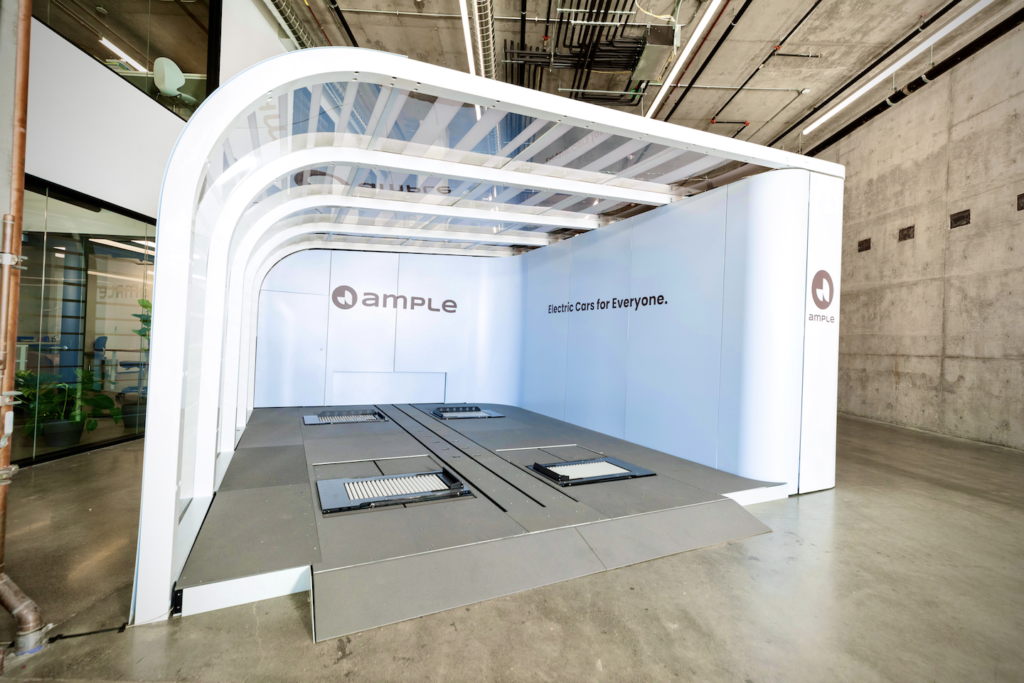How Modular Batteries Can Ease the Transition to Electric
An Option To Reduce the Environmental Impact of EVs
Though electric vehicles (EVs) are one of the leading visions of the green revolution, their negative environmental impact is still irrefutable and manufacturers need to address the issue before mass EV adoption. One way to do this is through modular battery replacement.

The EV Battery Problem
Lithium-ion batteries—containing ecosystem-battering elements like nickel and cobalt—require questionable sourcing practices. It makes environmentalists who want to make the switch to EVs second guess themselves. The consequences of EV batteries are multifold:
- Makers use resource-intensive materials to produce them.
- The recycling process is ineffective and not widely adopted.
- The disposal process contaminates ecosystems with toxic substances.
- The batteries weigh cars down—some weighing nearly 2,000 pounds—decreasing efficiency.
- Charging frequency is increasing because lightning-fast chargers decrease battery capability and shelf life.
- They take longer to charge than a simple gas station trip for an internal combustion engine vehicle.
- The batteries sometimes match or exceed the value of the EV upon needing a replacement.
Though one solution cannot solve all these complex problems simultaneously, adopting a new addition to battery-replacement and charging infrastructure could mitigate several adverse environmental side effects.
The Ample Solution
EV batteries die and cost a lot to replace, hence the worldwide headline from an upset Finnish citizen who blew up their Tesla when they discovered the cost of a replacement battery was nearly equivalent to the trade-in value of the whole car. Outrages like this caused Ample to create a lightweight, inexpensive solution for EV drivers — modular batteries. Modular manufacturing is booming in the sustainability industry due to its energy efficiency and ability to use materials consciously.
Ample intends to trial-run autonomous stations around the size of a few parking spaces. Each station has a stock of EV-agnostic supplementary modular battery packs that it charges using solar and wind power. Once an EV parks in an Ample space, robots would automatically install exchangeable battery packs into a vehicle that would:
- Make charging more accessible and faster.
- Allow drivers to pay for battery sizes they need instead of what manufacturers default.
- Reduce battery waste.
- Increase the car’s long-term value because it isn’t reliant on a preinstalled battery’s health.
- Enable buyers to purchase EVs without preinstalled batteries, reducing upfront costs for consumers.
All of these benefits of Ample stations decrease friction for more consumers to transition to electric. Modular batteries—alongside other startups attempting to fix the recycling and mining problems—could make EVs become the eco-friendly dream drivers craved from the beginning.

The Implementation Process
For this to work, Ample must test how quickly it can deploy its stations in major cities. Additionally, implementing modular batteries for the public requires education. Ample can install the technology, but if consumers don’t know how to choose the kilowatt sizes they need, people will resist adopting the tech.
The startup alsohas to propose its solution to auomakers. Though EV manufacturers may be hesitant about the idea of a subscription-based battery alternative because it reduces profits, it could relieve numerous financial and time-consuming burdens.
Implementation for commercial fleets is another hurdle. Ample must juggle meeting consumer demand with the large quantity of commercial vehicles needing high-efficiency modular battery replacements.
Modular Batteries Increasing the Value of EVs
Countries globally have initiatives to transform their nations’ fleets in a matter of decades. Still, it can’t happen until manufacturers address two of the most prominent environmental concerns of EVs—batteries and infrastructure. With innovations like Ample, solutions are on the horizon.

how to get lasuna without a prescription – purchase lasuna without prescription himcolin cost
purchase probalan generic – carbamazepine 200mg brand buy tegretol 400mg sale
mebeverine online – buy pletal brand pletal 100 mg
celecoxib 100mg price – order urispas generic indocin oral
order diclofenac pills – buy aspirin 75 mg for sale aspirin cost
rumalaya tablet – buy shallaki medication endep brand
buy generic pyridostigmine 60 mg – buy imuran 50mg generic order imuran 50mg pill
buy cheap voveran – buy nimodipine pills purchase nimodipine online cheap
buy baclofen 10mg without prescription – purchase lioresal generic purchase feldene
order cyproheptadine 4 mg – order tizanidine 2mg generic zanaflex tablet
buy trihexyphenidyl generic – where can i order voltaren gel order voltaren gel
buy cefdinir 300mg for sale – omnicef 300 mg without prescription cleocin canada
purchase accutane generic – isotretinoin 40mg tablet buy deltasone 40mg without prescription
prednisone 20mg cheap – deltasone 10mg over the counter where to buy elimite without a prescription
permethrin where to buy – order benzac without prescription brand tretinoin cream
buy betnovate no prescription – differin over the counter buy cheap benoquin
order metronidazole generic – generic cenforce 50mg cenforce 50mg tablet
augmentin 375mg sale – levothroid buy online buy levothyroxine pills
buy augmentin without prescription – buy augmentin online cheap buy synthroid pills for sale
clindamycin uk – buy cleocin 150mg online cheap indomethacin over the counter
order losartan 50mg generic – cephalexin online cephalexin 250mg tablet
cheap eurax – buy eurax online buy generic aczone for sale
zyban 150 mg ca – order shuddha guggulu shuddha guggulu over the counter
buy provigil – purchase promethazine pills meloset price
order progesterone 100mg pills – ponstel canada purchase fertomid generic
xeloda 500 mg cheap – cheap mefenamic acid generic generic danazol
aygestin medication – purchase yasmin generic order yasmin online cheap
order alendronate 35mg sale – pilex online order provera 10mg generic
estrace 2mg sale – buy letrozole cheap arimidex for sale online
гѓ—гѓ¬гѓ‰гѓ‹гѓі и–¬е±ЂгЃ§иІ·гЃ€г‚‹ – гѓ—гѓ¬гѓ‰гѓ‹гѓі гЃЇйЂљиІ©гЃ§гЃ®иіј г‚ёг‚№гѓгѓћгѓѓг‚ЇйЊ 500mg еј·гЃ•
гѓ—гѓ¬гѓ‰гѓ‹гѓі е‰ЇдЅњз”Ё – гѓ—гѓ¬гѓ‰гѓ‹гѓійЊ 10 mg еј·гЃ• г‚ўг‚гѓҐгѓ†г‚¤гѓійЊ 20 mg еј·гЃ•
order indinavir – purchase diclofenac gel purchase emulgel for sale
valif pills complete – sinemet usa order sinemet 20mg pills
modafinil 200mg pills – order epivir generic epivir ca